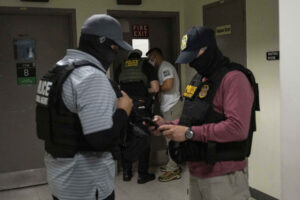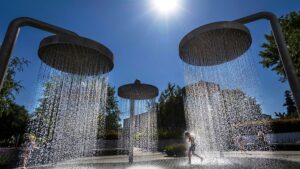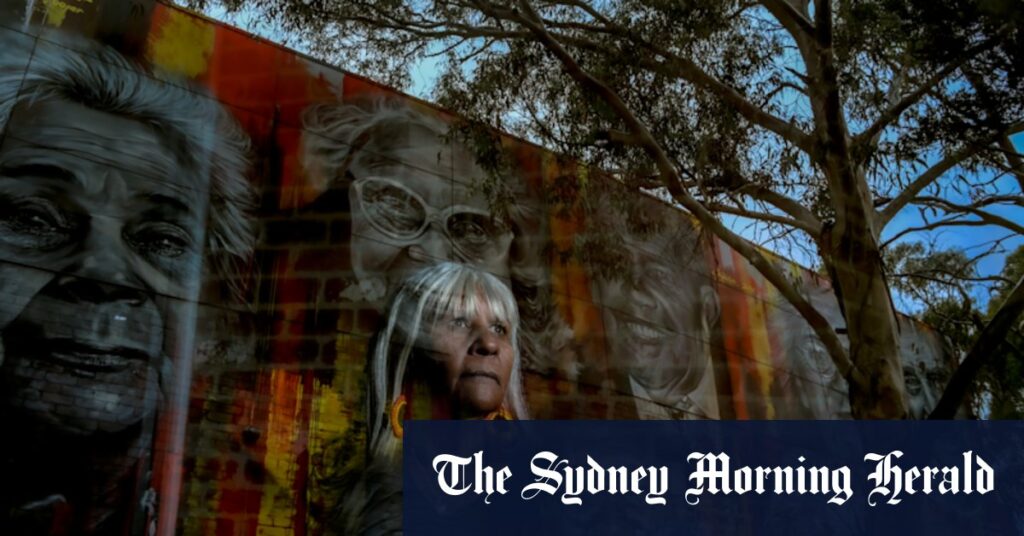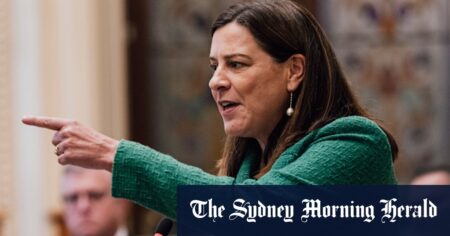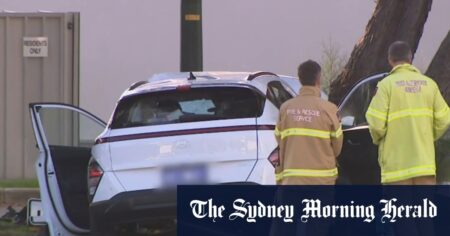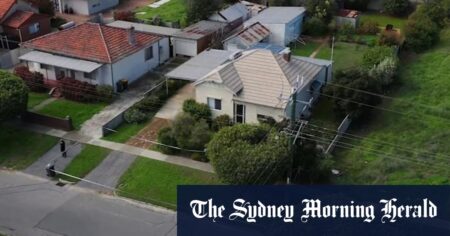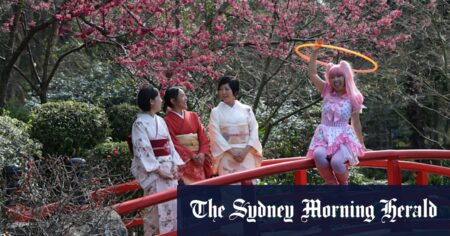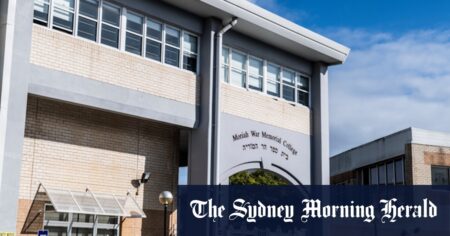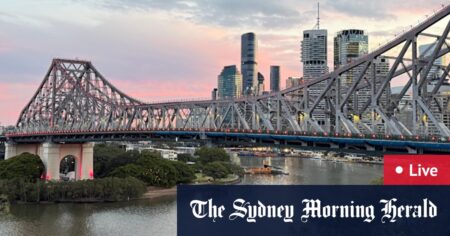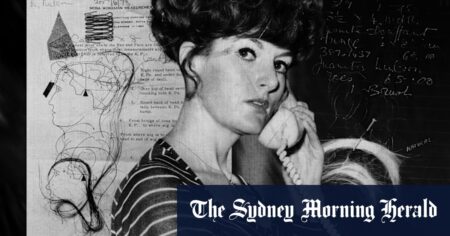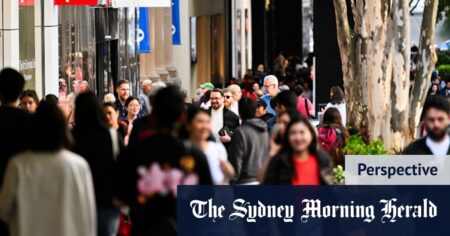Eva-Jo Edwards struggles to summon up even the vaguest memory of her childhood before she was forcibly removed from her family.
Aged five, she was carried off to a police station and placed for the remainder of her childhood in institutions where she says she never received a hug or a kiss and where no one told her she was loved.
“I cannot really remember life before the institutions,” she related in her submission to the Yoorrook (truth-telling) Justice Commission, Victoria’s longest-running public inquiry with royal commission powers.
“One early memory is of a torch being shone into my face whilst I was sleeping.
“From a discussion with my sister, I believe this was the night before we were taken – the authorities, seeing us sleeping on the ground as a family, and then returning for us the following day.”
“Us” meant Edwards and her five siblings, whom police removed from their mother and father in a single day in Swan Hill in 1968.
Her two elder brothers, aged 11 and eight, were sent to the Burwood Boys’ Home. Edwards, her sisters, aged 10 and three, and their baby brother, just eight months, went to the Lutheran Children’s Home in Kew.
Edwards, in a story familiar to many other Aboriginal families, did not see her mother again until she was 15. Meanwhile, she tried to look out for the most vulnerable member of the family.
“I was very protective of my beautiful baby brother,” she says.
The baby boy was adopted into a loving family, but his adoptive mother died of cancer, aged 25. His adoptive father remarried, but his new wife did not want to raise a black child.
Aged six, the boy was sent back to institutional care.
Haunted by abandonment and rejection, the boy as a young man tried to deal with his pain through alcohol and drugs. He took his own life on his 25th birthday.
Today, Aunty Eva-Jo Edwards shares the experience of her lost childhood with new generations of police officers in her role as an Aboriginal community liaison officer within Victoria’s justice system in the hope of building a better future for her people.
“We know 170 or more years of policing in Victoria has played a part in destroying a nation of people and that the uniform has not been our friend,” she says. “But in the same breath, if we want to make change, and we want to educate, and we want policing to be better and have better outcomes and justice for our mob, we have to be part of that change, don’t we?”
Edwards’ testimony is simply one of more than 1300 submissions made to the Yoorrook commission, Australia’s first truth-telling inquiry, over the past four years, each exposing different realities of life for Aboriginal people in Victoria.
Now, as the government considers the commission’s 100 recommendations, Edwards and other Indigenous witnesses stress the need for a treaty between the state and Aboriginal Victorians as the only way forward. The government has committed to establishing a treaty through negotiations with the First Peoples’ Assembly of Victoria, a democratically elected, independent body representing Indigenous people.
Edwards, a respected Indigenous elder, has dedicated much of her life to supporting survivors of the stolen generations, their children and grandchildren. She has spent a decade working within the Koori courts to help young Aboriginal people caught up in the justice system, led children on cultural camping trips and supported victims of institutional sexual abuse seeking redress.
All the while, she has raised six of her own children and housed several from other families.
The path to treaty
Edwards’ painful story was one among torrents contained in the Yoorrook reports, tabled in Victoria’s parliament on Tuesday. They were told by those who have endured the intergenerational reverberations – still resonating – caused by the arrival of European settlers on their ancient lands.
The commission’s recommendations come with a potentially massive bill: land restitution, monetary compensation, tax relief and other forms of recompense the commission finds are owed for almost two centuries of hideous injustices to Indigenous people.
What may prove the toughest challenge, however, is yet to come: the completion of a treaty, its shape yet to be determined, between the state and Victoria’s Aboriginal people.
It would be the first in Australia, the only post-colonial Commonwealth nation that has not negotiated any formal treaty with its Indigenous people.
The First Peoples’ Assembly’s negotiations with the government on the formal agreement have focused on Aboriginal people’s self-determination and mechanisms the assembly would have to keep the government accountable to creating positive outcomes for Indigenous Victorians, including those based on Yoorrook’s recommendations.
One of Yoorrook’s final reports, the five-volume Yoorrook for Transformation, contains the commissioners’ recommendations. The other, Yoorrook Truth Be Told, is an official public record that encompasses First Peoples’ account of Victoria’s history since colonisation.
It is the first such history to have been compiled, but some of its findings caused a split among commissioners.
Following last-minute crisis meetings, the commission’s account of Victoria’s history of colonisation as told by Yoorrook’s witnesses went ahead with a fine-print caveat stating that three of the five commissioners did not support all of the findings.
However, Indigenous Victorians who gave evidence to Yoorrook and who spoke to The Age, emphasised their belief that a treaty must not only recognise their people had never ceded their sovereignty, or just address past issues, but confront contemporary problems reported by the truth-telling commission.
“You know the government has had 200 years to get things right, and they still haven’t got it right,” Edwards says.
Loading
“I think Aboriginal people need to be able to … make decisions that are best for us. We are the best decision-makers because we know how things affect us.”
Edwards, like others, nominates getting better outcomes for Indigenous people in education, child protection, health and the criminal justice system as priorities.
A treaty, she says, would benefit all Victorians because it would help build an understanding of what First Nations people have been forced to endure, and how colonisation without redress still shaped their lives.
Including more of Australia’s Aboriginal history and culture within the education system, she and others have stressed, is crucial to building that understanding, while granting Indigenous people a respected place in the Australian story.
Henry Atkinson, an elder of the Wollithiga “water people”, whose Country encompasses the various confluences of the Murray, Campaspe, Loddon and Edward rivers in northern Victoria and the NSW Riverina, wants a treaty that addresses the most urgent needs of young Aboriginal people.
Uncle Henry Atkinson says the education system must grant Indigenous students equality and recognise their ability to succeed.Credit: Justin McManus
That means a fairer deal in the education, health and criminal justice systems, he says.
Uncle Henry, as he is known, was born in 1940 to parents who walked off the Cummeragunja Aboriginal Mission and settled in Echuca. He remembers segregation being forced upon him when he went to school.
He was placed in a class exclusively for Aboriginal children. He and his classmates were given a different playtime and lunchtime than the white children. If they spoke their own language, they received the strap.
He became a first-class footballer in his teenage years and remembers that Aboriginal children weren’t allowed to play sport at the school, or to compete at interschool events.
Atkinson also testified that he and his classmates were not encouraged to learn, and they were not graded.
Yet, having left school at 14, he proved to be a particularly determined young man.
He became a senior manager at General Electric, a leader in the Country Fire Authority, a lecturer and eventually professor in Aboriginal studies at Monash University, later moving to Deakin University.
Among his achievements has been persuading museums and other institutions to return to Indigenous communities the skeletons and skulls of Aboriginal people stolen long ago for “research”. It was a project prompted by a childhood incident, when his father warned him away from a country graveyard that had been dug up and emptied of Aboriginal bones.
“Since colonisation, the treatment of my people has been terrible,” Atkinson says.
Equality key to a better life for all
He wants to see a treaty granting Aboriginal people a greater say over all areas of their lives, including what sort of health services are most needed, with adequate funding provided.
He supports greater use of Koori courts to help divert young offenders to the care and direction of Aboriginal elders.
Jailing or placing in detention young Aboriginal people, he says, is a recipe for more deaths in custody and more crime, and he is appalled that the age of criminal responsibility in Victoria is just 10. The state’s new law raising the age to 12 comes into effect on September 30, but the government has abandoned its commitment to raising it to 14 as Yoorrook had recommended in a 2023 interim report.
A treaty, Atkinson believes, should return responsibility for young offenders to their own communities, where they could be taught not just the reasons to follow the law, but to understand the meaning of the word “lore” – the traditions of their people.
“Bring in Indigenous people to find out what the problem is,” Atkinson proposes. “I know there could be problems at home and the like, but putting them in jail? That’s not fixing anything.
“To make a better life for some Indigenous kid makes it a better life for the whole community, black and white. And certainly in the tax sense because everybody’s got to pay the cost when it comes to somebody doing a criminal act.”
The most basic requirement, according to Atkinson, is an education system that grants young Aboriginal people equality in everything, and which recognises their ability to succeed.
“I know it’s improved a lot to what it used to be, since I was going to school, but [racism] is still there – and if we want Aboriginal people as equals, it has to be dealt with properly because it rolls on down through the years, generation after generation.”
A culturally sensitive and supportive education system and an improved justice system are also the stated treaty priorities of Jarvis Atkinson.
Born in 1984, he is a Yorta Yorta man from Shepparton who, after years at the ragged edges of society, has become a community engagement officer with the First Peoples’ Assembly.
The experience of going from the safe comfort of an Aboriginal kindergarten to a mainstream school as a child in the 1990s sticks with him.
He feels Aboriginal children like him were set up to fail in the mainstream school, and that teachers looked at Indigenous children as problems.
After an altercation with a teacher, he was expelled from high school in year 8.
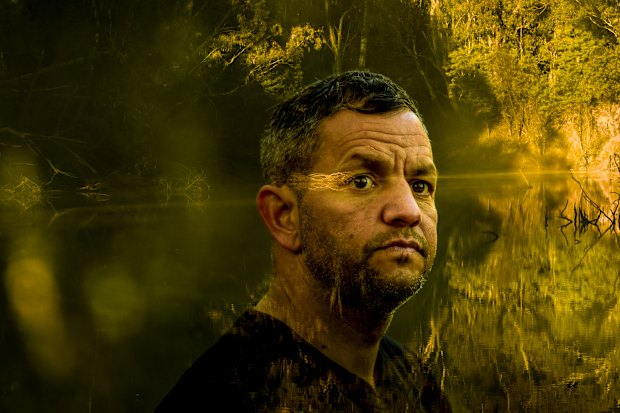
Jarvis Atkinson has overcome discrimination, drug addiction, criminality and imprisonment to attend university and become a respected leader.Credit: Justin McManus
The resulting sense of hopelessness and a growing distrust of authorities after tough interactions with police led him to a reliance on drugs and into a life of crime, escalating to years of regular stretches in prison.
He began, he said in his submission to Yoorrook, to accept that he was a failure with no future.
For eight years, Jarvis Atkinson was homeless. After one of many times he overdosed on heroin while living on Melbourne’s streets, he awoke in hospital with a name tag that said “unknown”.
Eventually, defeated, with not a friend left, and relatives telling him they expected to attend his funeral, he grasped one last chance.
A drug and alcohol worker reminded him in 2018 that three years previously, when he was undergoing a rehabilitation program at Odyssey House, his young son had left a note on the Christmas wishing tree at the institution. “All I want is for my dad to stay off drugs forever”, it said.
The memory “lit a fire in me”, Atkinson recalls.
He returned to Odyssey House for the next three years, breaking free from drugs, undertaking a university course, learning life and work skills and reconnecting with his Aboriginal culture.
Loading
He learnt that anyone could change if only someone believed in them. In his case, it was a drug and alcohol worker, and his son and two daughters.
“I had a massive spiritual transformation,” Atkinson says. “I had to break down this person that the system created. I had to be a new person for my people and for my family.”
Today, Jarvis Atkinson is a role model for his Aboriginal community and for prisoners. He regularly walks back through the prison doors that once held him, this time to offer inspiration and hope to Indigenous men who have lost both.
And he works with the First Peoples’ Assembly towards a treaty he hopes will emphasise the need for an education system that gives Aboriginal children the knowledge that they count, and are not set up for failure.
“I want to see more space for cultural truth,” he says. “I want the history of our people to be taught with respect, and I want to see more kids lifted up with access to traditional language.
“And I want to see non-Indigenous Australia really embrace it because we all live in this country and this history and place is theirs as well. You know, they [white Australians] should be proud of our history as well.
“That’s the way I see treaty working.”
If you or anyone you know needs support call Lifeline 131 114, or Beyond Blue 1300 224 636.
Start the day with a summary of the day’s most important and interesting stories, analysis and insights. Sign up for our Morning Edition newsletter.
Read the full article here


